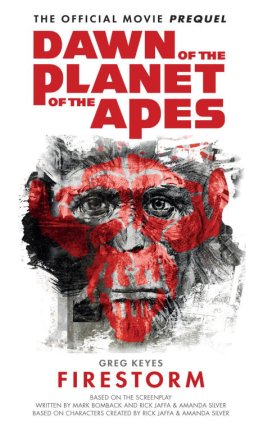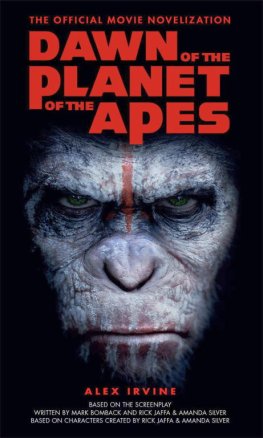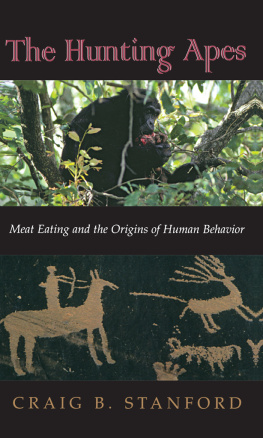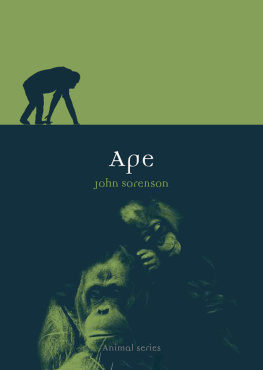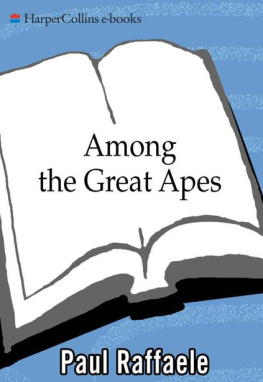Killer Apes, Naked Apes, & Just Plain Nasty People
K ILLER A PES ,
N AKED A PES ,
& J UST P LAIN
N ASTY P EOPLE
The Misuse and Abuse of Science in Political Discourse
Richard J. Perry
JOHNS HOPKINS UNIVERSITY PRESS
Baltimore
2015 Johns Hopkins University Press
All rights reserved. Published 2015
Printed in the United States of America on acid-free paper
9 8 7 6 5 4 3 2 1
Johns Hopkins University Press
2715 North Charles Street
Baltimore, Maryland 21218-4363
www.press.jhu.edu
Library of Congress Cataloging-in-Publication Data
Perry, Richard John, 1942
Killer apes, naked apes, and just plain nasty people : the misuse and abuse of science in politics / Richard J. Perry.
pages cm
Includes bibliographical references and index.
ISBN 978-1-4214-1751-6 (hardcover : alk. paper) ISBN 978-1-4214-1752-3 (electronic) ISBN 1-4214-1751-0 (hardcover : alk. paper) ISBN 1-4214-1752-9 (electronic) 1. Sociobiology. 2. AnthropologyPhilosophy. 3. Political anthropology. 4. SciencePhilosophy. 5. Science and civilization. I. Title.
GN365.9.P47 2015
304.5dc23 2014043205
A catalog record for this book is available from the British Library.
Special discounts are available for bulk purchases of this book. For more information, please contact Special Sales at 410 -- 6936 or specialsales@press.jhu.edu.
Johns Hopkins University Press uses environmentally friendly book materials, including recycled text paper that is composed of at least 30 percent post-consumer waste, whenever possible.
For Ali.
In love with you forever.
Dedicated to
Alice Pomponio
August 4, 1952June 19, 2012
Loving wife, loving mother.
Internationally honored Professor of Anthropology
Contents
Preface
Ive been a student of anthropology since the late 1950s when in high school, I first discovered what it was. I studied it in college and in graduate school, taught it as a college professor for more than thirty years, and was married to a wonderful anthropologist for two decades. If any life has a theme, I guess mine has been anthropology. One could do worse.
I began this project when our son, Gregory, a college student, reacted with outrage to an assigned reading that seemed to promote biological determinism. When he shared his written response with me, my own reaction was similar to his. Having retired a few years earlier after teaching anthropology for more than three decades, Id pursued various other interests since that time. My first thought was, I cant believe theyre still pushing this stuff.
I should have known better, of course. I had published a critique of sociobiology back in 1980, and a few years ago, Id written a book on race and racism that dealt at some length with the history of biological determinism, eugenics, the misuse of IQ tests, and other abuses of biology in the pursuit of social and political agendas. In retirement, though, Id paid less attention to the issue. (Following such scholars as C. Loring Brace, the word race here will always appear in quotes, reflecting the general view that the concept lacks scientific validity.)
In retrospect, I recall various articles in the popular media about such things as evolutionary preferences for dating partners and references to alpha males and even noted some biological determinist du jour showing up once in a while in the New York Times Sunday Magazine . But somehow Id brushed over such things and moved on to items that seemed more engagingthe Sunday crossword puzzle or eight ways to cook chicken thighs. Now I felt like a reverse Rip van Winkle who wakes up after a long slumber to find that nothing has changed.
Despite my optimistic assumptions, it was evident that biological determinismin whatever guise or terminological trappingsisnt dead after all. Its not even appreciably weaker. I had naively assumed that since its regenerative tendrils had been trimmed and discredited numerous times over the past decades, it had finally wilted as a serious enterprise. Wrong. In fact, it has continually regenerated, and its still very much with us. Its remained a constant, if noxious, part of the intellectual ecosystem, an unwelcome assertive guest who stays way too long at the party.
If we hope to take some comfort in the thought that these old ideas, having been discredited so many times, no longer have much influence, we only need to look at the news of the day. One obvious question is why. The object of this exercise is to answer that question.
Well address these and many related issues in the following pages. For the rest of this book, this is what were in for.
I HAVE MANY PEOPLE TO THANK for their help and support though the process of writing this. Foremost among them is my son Gregory who, despite the demands of his own studies as a college student, patiently read through several drafts, suggesting corrections, additions, and more than a few deletions. Whatever value this book may have, his tireless efforts and encouragement have enhanced it greatly.
I want to thank Paul Lawrence Farber, Distinguished Professor of History of Science, Emeritus, at Oregon State University, who offered many helpful suggestions. And thanks to Robert J. Brugger, senior editor at Johns Hopkins University Press, who patiently and skillfully navigated the project through perilous waters.
Im especially indebted to friends and colleagues who listened patiently to ideas, offered some of their own, and suggested readingsgenerally at our regular Thursday night get-togethers at the local Best Western. Special thanks to Shinu Abraham, Mindy Pitre, Adam Harr, and Wendi Haugh of the Anthropology Department at St. Lawrence University; Karen Dillon ONeill, Leah Rohlfsen, Karen Gagne, and Dan McClaine of sociology; Juan Ponce-Vasquez, Elun Gabriel, and Donna Alvah of history; Sandhya Ganapathy of Global Studies; and Karen Johnson-Weiner of anthropology at SUNY Potsdam. And to Jenny Hansen of philosophy at St. Lawrence, who actually read an earlier version of the manuscript. Although theyve indulged and supported me, theyre not responsible for any errors or shortcomings in the following pages.
Finally, to my wife and partner, Alice Pomponio, a beloved colleague of many of these folks, who passed away in June 2012. This is for her.
Killer Apes, Naked Apes, & Just Plain Nasty People
Introduction
W HERE A RE W E G OING WITH T HIS ?
Were about to take a brief look at the history of biological determinism in its various forms over the past century and a half. To start, well consider some of the ideas Europeans of an earlier time held about human traits and differences and what they believed caused or cultivated these characteristics. Well then follow the appearance of biological nuances and themes in these ideas beginning with the European Enlightenment of the eighteenth century, when biology began to develop as a science.
The tale continues through the rise of the eugenics movement and the upsurge of overt racism in the nineteenth and early twentieth centuries, when the focus shifts more directly to the United States and, to a lesser degree, Great Britain and Germany. Well examine later arguments and assertions about human nature that drew inspiration from the advancing studies of human evolution, ethology, and genetics, eventually leading to the rise of sociobiology in the 1970s. The process continues to the present, culminating with a focus on the current enterprise of evolutionary psychology and its social and political implications.
In the various political and philosophical contexts of each historic phase, biological explanation has often resonated to justify deeply conservative points of view. The idea that things are the way they are because of inherent biological factors, and therefore are not susceptible to rapid change, has an inherently conservative appeal.
Next page

